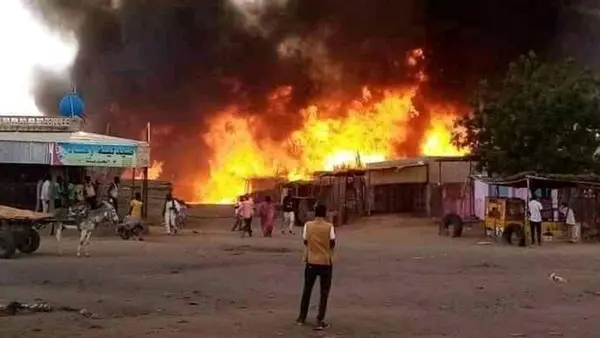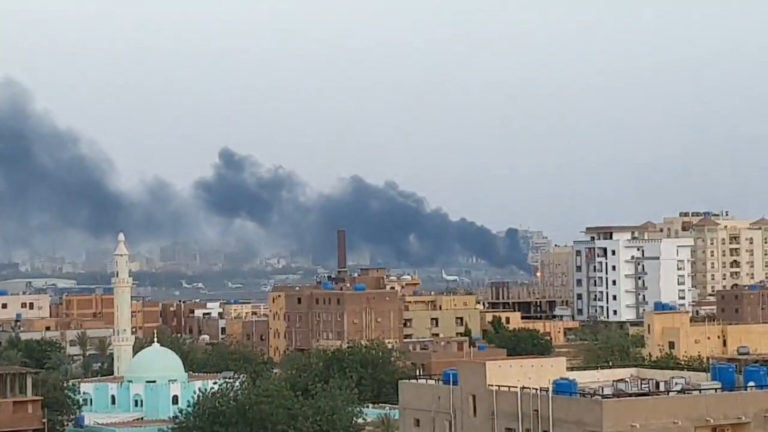Intense fighting rocked the Sudanese city of El-Fasher on Saturday, as U.S. researchers reported an “unprecedented” escalation of combat in the North Darfur state capital. The city, besieged by paramilitary forces since May, is the last major urban center in Darfur not controlled by the Rapid Support Forces (RSF).

Witnesses described deserted neighborhoods echoing with explosions and missile fire. Ibrahim Ishaq, 52, who fled the city on Friday, told AFP, “The central market area has become unlivable because of the intensity of the explosions.”
The Yale School of Public Health’s Humanitarian Research Lab confirmed “unprecedented large-scale combat operations” in El-Fasher over the past 10 days, with a significant escalation in the 36 hours prior to their Friday report. The analysis cited a “major multidirectional RSF attack from the northern, eastern, and southern directions” on Thursday.
Darfur Governor Mini Minawi claimed on social media that the army had repelled “a large attack” by the RSF, while the paramilitaries stated they had seized military sites in the city.
Using satellite imagery and other data, Yale researchers identified munition impacts likely from army aerial bombardments, as well as damage from RSF bombardment and ground combat. They warned that the current level of fighting could “effectively reduce what is left of El-Fasher to rubble.”
U.S. Special Envoy for Sudan, Tom Perriello, expressed extreme concern about the RSF’s renewed attacks and urged them to halt their assault.

The conflict, which began in April 2023, has created what the UN calls the world’s largest displacement crisis. Millions have been uprooted, and famine has struck a displacement camp near El-Fasher. Darfur has witnessed some of the war’s worst atrocities.
In Khartoum, about 800 kilometers from El-Fasher, witnesses reported heavy explosions and strikes to the city’s south on Saturday, indicating the conflict’s wide-reaching impact.
The death toll from the war is estimated to be as high as 150,000, according to Perriello. Earlier this month, independent UN experts called for the urgent deployment of an “impartial force” for civilian protection in Sudan, a proposal rejected by Sudan’s foreign ministry, which is loyal to the army.
As the situation in El-Fasher deteriorates, humanitarian organizations face increasing challenges in providing aid to the besieged population. The international community continues to call for a ceasefire and a return to negotiations, but with combat intensifying, the prospects for peace remain distant.
The ongoing conflict in Sudan not only threatens the stability of the country but also risks further destabilizing the entire region, with potential consequences for neighboring nations and beyond.
Source:VOA



